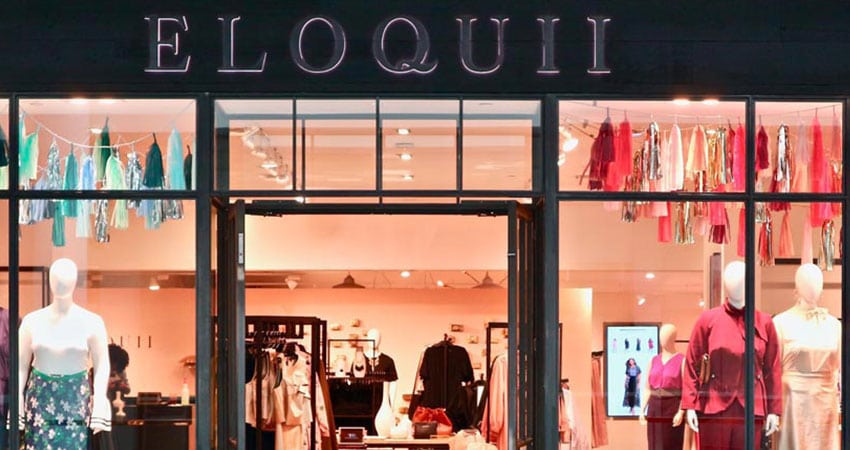Plus-size fashion retailer Eloquii is leveraging data and analytics to find success with targeted
“pre-tail” initiatives that gauge shopper interest before a new product is launched, CEO Mariah Chase told attendees at IRCE in Chicago.
Pre-tailing is the practice of introducing new products, services and brands to market by pre-launching online, generating buzz, interest and waitlists as well as pre-orders in limited quantities.
Chase said Eloquii takes non-sales demand data and signals to help drive incremental revenue, margin and customer acquisition efficiency.
“We’ll put an image up four weeks before it’s available, when customers can enter their email, select a size and know the first moment it’s available to sell,” she said. “After 24 to 48 hours on the waitlist, we’ll know whether it will be a unicorn, good, average or maybe a problem child.”
This sets off a chain reaction, helping Eloquii quantify orders and know “if it’s a winner that won’t have to go to markdown,” Chase said.
“We’ll say to our design team, ‘give us a lot of content’ and we’ll use it in brand marketing and high-performance marketing to drive acquisition and retention efficiency” Chase said. “This customer-driven data allows us to mitigate risk on an item that has the potential for a lot of volatility. Pre-tailing with customer data allows us to react really quickly.”
Eloquii, a venture backed firm, launched as a sister brand to The Limited in late 2011 but was shut down 11 months later as customers were “sizing out of the offering,” Chase said. The current owners purchased the assets in 2013 and re-launched the company online in 2014. Eloquii has since followed the click-to-brick trend, opening four physical stores, with a fifth opening this month in Houston. In March the company struck a partnership with Reese Witherspoon’s Draper James apparel company, selling a plus-size line online and in stores at both companies.
Noting that ongoing challenges in the store channel have had a deflationary effect on pricing, leading to more promotions as well as pressure on the online channel to deliver sales and margins, Chase said Eloquii has been experimenting with dynamic pricing for the past year, to good effect.
“You all bought airline tickets to get here, with prices that fluctuated greatly based on supply and demand, and there’s surge pricing on Uber,” Chase said. “Why aren’t more non-commodity items priced that way? We’ve been testing (dynamic pricing) for a year, powered by machine learning and algorithms. We’re seeing pretty significant incremental margin on items that have been dynamically priced through the lifecycle.”
Chase also spoke of what she described as a “power shift” from retailers to customers in terms of dictating fashion trends and cycles, and merchants need to act accordingly by giving them what they want.
“Our creative director likes to say, there are no trends anymore,” she said. “Just as society today is increasingly fragmented with micro-tribes, customer preferences are all over the place. We used to have the fashion trend cycle – it starts now, we know how long it’s going to rise for, we see the peak and understand how long the decline will last. That by and large is gone. Today the trends look more like the value of Bitcoin – she loves you, hates you, she’s here, she’s there.”
Which is why data and analytics have become so critical to business success in apparel, Chase said. “Today because the power has shifted to a bottom-up business, you need data to understand, especially in a design business, where the customer is and when so you can serve her. You have to learn how to leverage data to successfully take design risks.”

